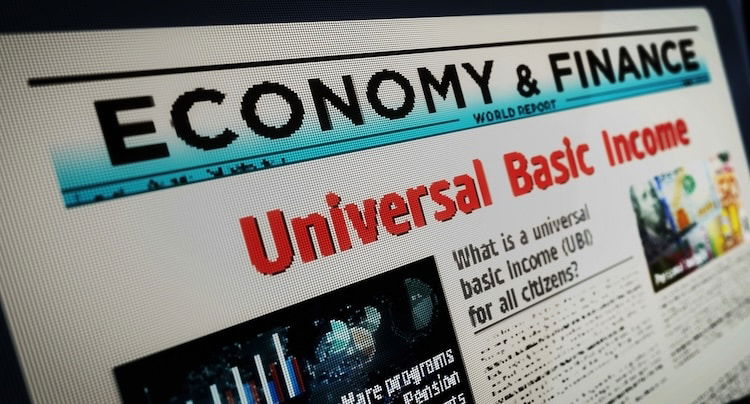Recent UBI trials reveal that guaranteed income provides immediate mental health relief, but sustaining long-term benefits may depend on lasting economic security.

Interest is surging in the idea of a Universal Basic Income (UBI) – a regular income paid by the government to each adult member of society, regardless of their personal or financial circumstances. But can it achieve its stated goals of reducing poverty, improving working conditions and increasing well-being? Thanks to a global flurry of pilot programmes putting these claims to the test, answers to this question are starting to trickle in.
In 2020, 1,000 low-income individuals in the US states of Texas and Illinois began receiving $1,000 per month for three years as part of America’s largest-ever study on UBI. No conditions were attached – participants could use the money as they wished. The results of this large-scale and meticulously conducted randomised control trial offer a fascinating insight into how people might spend their time and money if they were guaranteed a no-strings basic income.
Spending increased, going mainly to food, rent and housing, as did savings. Time spent in employment decreased (by 1.3 hours per week) – not a bad thing in the eyes of UBI advocates, who insist that the goal of UBI is not to increase overall employment but to put pressure on employers to improve job quality and to allow people to devote more time to lifelong learning and to unpaid, often more socially valuable work, such as caregiving. Among those looking for work, participants were more selective about the jobs they applied for and more likely to state “interesting or meaningful work” as a requirement.
On health, the increased income had insignificant effects on most indicators – not too surprising, given that the study took place over three years, while health problems develop over lifetimes. However, mental health was one clear exception consistent with other studies on basic income-like interventions. The study found “large improvements… in mental health measures like stress and psychological distress.” This could be observed, however, only during the first year of the experiment. Why was this improvement so short-lived?
A new UN report being presented to the General Assembly in New York this month offers some answers. The report lays bare how living in poverty significantly increases the risk of mental health problems. While 970 million people – 11% of the world’s population – experience a mental health condition, those on lower incomes are up to three times more likely to suffer from depression, anxiety, and other common mental illnesses than those with higher incomes.
The report finds that economic insecurity is a major source of stress, particularly in today’s “burnout economy”, in which people on low incomes increasingly find themselves in dehumanising, low-paid jobs that don’t pay enough to support their families or in precarious, casual contracts with wildly unpredictable work schedules. Economic shocks – or even the mere anticipation of such shocks and the impact they will have on income – are found to be a major cause of depression.
Given the permanent state of economic insecurity experienced by those living in poverty, it makes sense that participants in the US experiment reported lower levels of stress and psychological distress once they started to receive their monthly payments. At its most basic, a guaranteed income provides breathing room for those in poverty to not worry about how to put food on the table. Given the multiple other challenges people on low incomes face, a year’s relief from the psychological impacts of economic uncertainty is not to be sniffed at.
Importantly, the income came with no conditions – to find work, undergo training, attend appointments, and fill out complex forms – which, in a world of welfare sanctions and petty conditionality, is increasingly rare. This is despite evidence showing these conditions are ineffective and can even be mentally damaging to beneficiaries.
By the second year of the experiment, the effects of UBI on mental health had faded. Detractors gleefully point to this fact as evidence that the promises of UBI are unfounded. Yet, surely, it supports the view that economic insecurity has a significant impact on mental health and that this sense of security will inevitably diminish as the end of cash transfers approaches.
The value of UBI is not just in the income it offers, but in the security and predictability it provides. What would a lifetime of certainty mean for people in poverty? With their mental health crisis deepening by the day, it’s a question worth asking.


